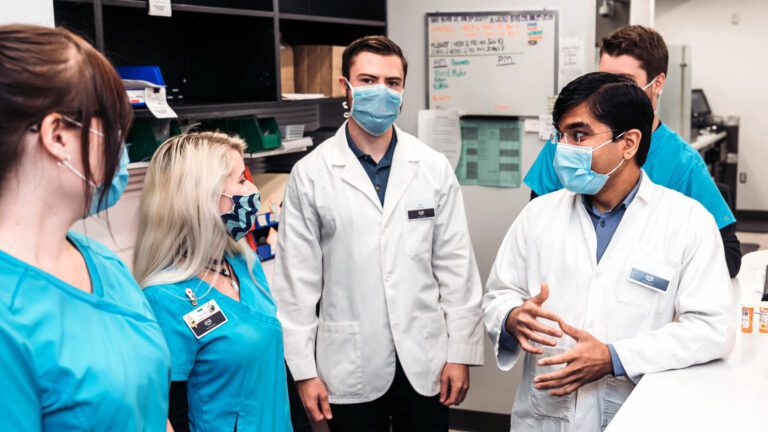
The standards referenced in the article below are out of date as of February 1, 2025. Please refer to ACP’s new standards for up-to-date information.
In effective pharmacy practice everyone is working together, performing their role, and everyone’s role is well defined. The more each pharmacy team member knows about each other’s roles and responsibilities, the better. This issue of Full Scale focuses on the licensee and the proprietor, their roles, and why it is important for them to work together to create an environment to deliver quality care to the patients of their pharmacy.
The licensee (or pharmacy manager) is responsible for ensuring their pharmacy, and all pharmacy team members, comply with or exceed all legislation and standards that govern pharmacy practice. This duty includes everything from ensuring the pharmacy has adequate staffing, to maintaining appropriate records, and drug storage systems.
Typically, proprietor means a person who owns, manages, or directs the operation of a facility in which a licensed pharmacy is located and exercises a significant degree of control over the management and policies of the licensed pharmacy or the conduct of the regulated individuals who are employed by the licensed pharmacy.
The proprietor must ensure the licensee can fulfill their responsibilities and has the necessary support and resources required to comply with the regulatory framework governing pharmacy practice and operation. The licensee and proprietor are both responsible for cooperating to ensure compliance with the standards and the legislation. A proprietor must not influence the management or operation of a pharmacy by a licensee in any manner that contravenes established legislation or standards of practice.
Licensees and proprietors have success when they understand and complement each other’s responsibilities. Because there is some overlap in the responsibilities between the two roles, collaboration is important so that decisions are made collectively as opposed to unilaterally.
One article in this issue will introduce you to ACP’s new Licensee Education Program and Proprietor Self-Assessment. The programs are designed to help pharmacists, licensees, and proprietors understand licensees’ and proprietors’ legal responsibilities, and ACP’s expectations of them when operating a pharmacy.
Other articles in the issue will explore
- strategies for addressing patient concerns and complaints,
- what nurtures a licensee’s success, and
- how a licensee can empower pharmacy technicians.
Pharmacists, pharmacy technicians, and proprietors will benefit from an increased awareness and understanding about the responsibilities of licensees and proprietors. We hope this edition of Full Scale will give you a greater understanding about how the two roles work independently and in harmony to ensure safe and effective pharmacy practice.




